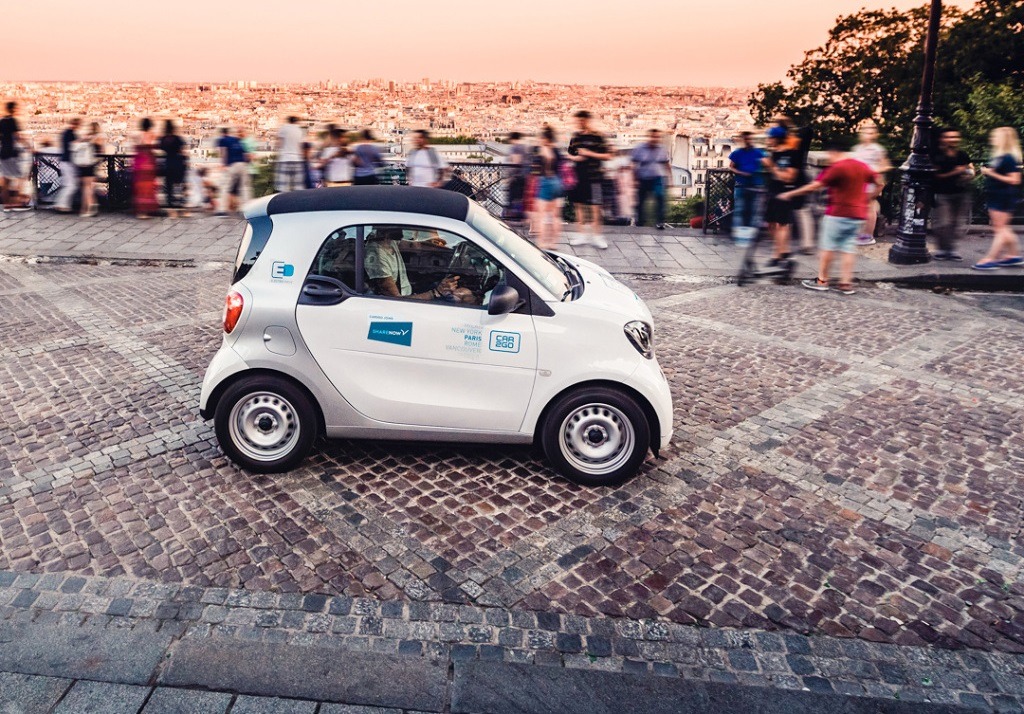Daimler celebrates ten years of car-sharing
02 September 2019

Daimler celebrates ten years of car-sharing
2 September 2019
Daimler is celebrating ten years of its mobility services by highlighting how far car-sharing schemes have come and how important they are for the future automotive market.
The German carmaker was the first to put a fleet of 200 smart cars on the road for location-independent car-sharing in 2009. The brand celebrated the anniversary together with SHARE NOW in Paris with a panel discussion on the topic.
The company merged its mobility arm with BMW earlier this year, with the new brand, SHARE NOW, having more than four million customers around the world, more than three million of them in Europe alone. The service provides some 20,000 vehicles, including 3,200 electric cars.
Perfect model
′When we started in Ulm in 2009, the sharing economy was still in its infancy. Today, free-floating car-sharing is a perfectly natural part of the daily routine in larger cities. We are delighted that we at smart together with SHARE NOW have shaped this field from the very start and have also paved the way for private car-sharing. Because car-sharing reduces congestion, air pollution and parking shortages. Smart delivers the perfect vehicles for this purpose', says Jakob Luickhardt, Portfolio Strategy and Hardware smart Services.
Amongst other things, the discussion centred on the question of how needs-based, sustainable and efficient passenger transport can be designed in the future. How can traffic be reduced and city-centre infrastructures be relieved? How can a new urban quality of life be created?
′Each of our vehicles already replaces up to eight private cars today and thus makes an important contribution to a higher quality of life in the cities. In high-density metropolises such as Paris, the all-electric smart is the most popular car-sharing vehicle for the customers of SHARE NOW and an optimal complement to the public transport network and other mobility solutions', says Simon Broesamle.
Multi-modal
The target vision is a mobility that is no longer guided by the question of how to get from point A to point B with a previously defined means of transport. Future mobility concepts focus on how customers can travel a route preferably conveniently, safely, quickly and in a sustainable fashion using a combination of different means of transport. This takes offers of the public transportation network equally into account along with sharing services ranging from minibuses to bicycles and even pedestrian routes.
Digital services calculate the routing and open up the possibility to book and pay for all stages and services. The first components for this multi-modal and sustainable mobility vision have already been put in place at SHARE NOW and smart and are being expanded continuously, the company says.
Smart future
Smart is the world’s first car brand to complete the systematic switch from combustion engines to electric powertrains, Daimler says. The carmaker sold a 50% stake in the city-car firm to Geely in 2019 to share the cost of conversion to electric. By 2020, smart will gradually reduce the range of combustion engines in all European markets and switch over completely to the locally emission-free, battery-electric powertrain for the smart fortwo, fortwo cabrio and forfour.